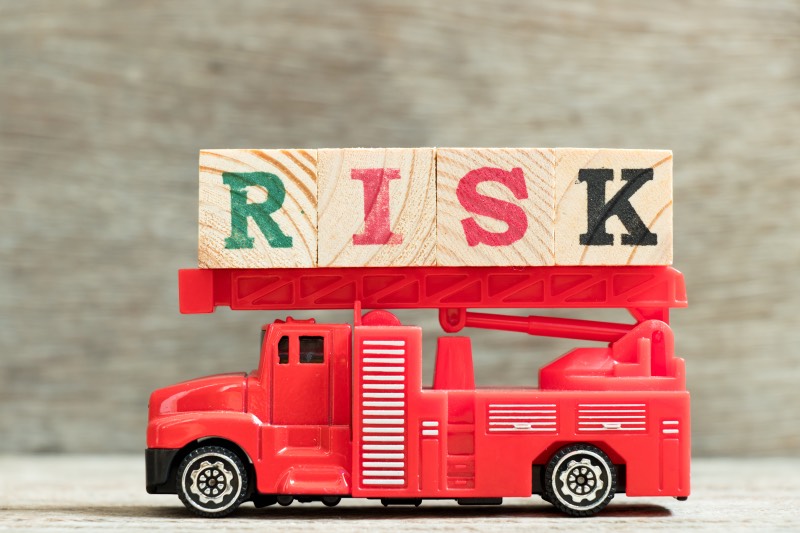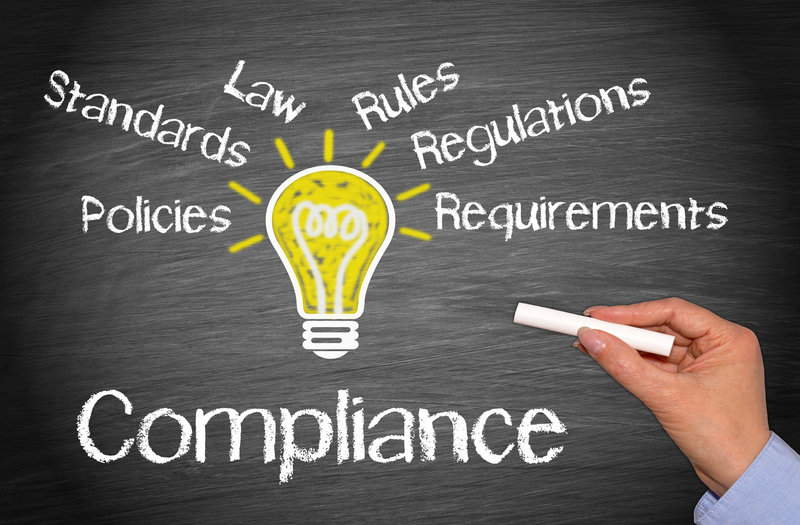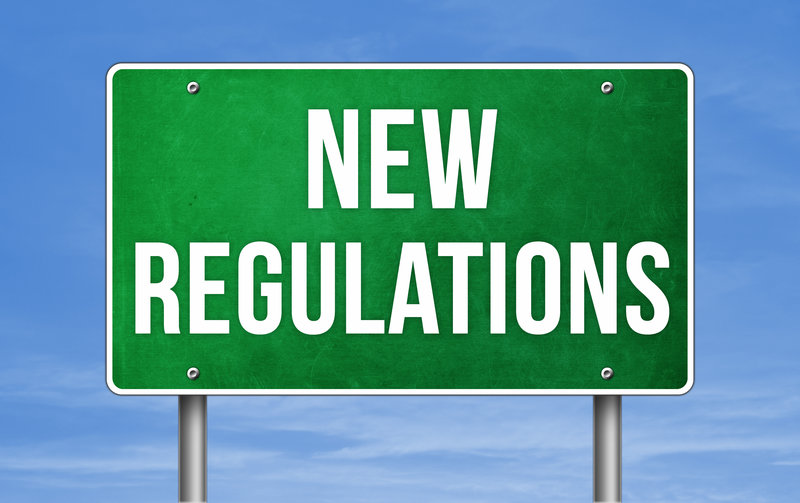As a holiday home owner, does fire safety law apply to me?
In short, Yes. When you are renting out your property (whether it be a cottage, caravan, tree house or cabin), if you have paying guests, you have responsibilities to comply with fire safety law.
In recent years there has been a large increase in the number of health and safety laws that holiday home owners need to adhere to. The rules and regulations surrounding fire safety are no exception. Whilst following standard fire safety procedures is common sense for a number of different reasons – not least the safety of your guests – as a holiday home owner you will find yourself facing hefty fines if you do not comply with the law.
This article aims to give a brief overview of the current regulations for holiday home owners surrounding fire safety and carbon monoxide poisoning. However, please note that we are not lawyers. The contents of this article is only our interpretation of the law and should be used as a starting point to conduct your own research. In addition, it is worth noting that different countries within the UK have slightly different laws, and new rules and regulations are frequently introduced to individual regions.
Fire risk assessments
Under the Regulatory Reform (Fire Safety) Order 2005 (England and Wales), the Fire Safety (Scotland) Regulations 2006, Fire (Scotland) Act, the Fire Safety Regulations (Northern Ireland) 2010 and the Fire and Rescue Services (Northern Ireland) Order 2006 holiday home owners are legally obliged to undertake a fire risk assessment. This does not need to be a long or complicated document but it must identify and assess what the fire risks are in your property and what measures you have put in place to minimise them. Whilst a qualified fire consultant can do this for you there is no reason why you can’t carry out your own fire risk assessment. No one knows your property as well as you do so you are likely to be the best person to identify what the fire risks are and how to mitigate them.
There is plenty of information on the internet to help you write your own fire risk assessment. We have found Do you have Paying Guests?; Fire safety risk assessment: sleeping accommodation (England and Wales); and Practical Fire Safety Guidance for small bed and Breakfast and Self-Catering premises (Scotland) particularly helpful. If you have any questions, or you are unsure of anything, your local fire brigade is a useful first point of contact. Your fire risk assessment needs to be a ‘live’ document. The law does not currently state how often it should be re-assessed but it is recommended that you review it each year and every time you carry out any changes or maintenance to your property.
Smoke and carbon monoxide alarms
Any fire risk assessment will flag the importance of installing smoke and carbon monoxide alarms which provide crucial early warning of a fire or carbon monoxide poisoning. However, various pieces of legislation also make it a legal requirement for landlords to install smoke and carbon monoxide alarms. As a holiday home owner you have the same fire safety responsibilities as a ‘landlord’.
England
The Smoke and Carbon Monoxide Alarm (England) Regulations 2015 makes it a legal requirement for holiday home owners in England to install a smoke alarm on each floor that is used as a living space. The regulations do not stipulate what sort of smoke alarms you should have or where they should be located but they do state that landlords should use the most suitable type of alarm for their property. An appropriate smoke alarm system for a small bungalow is likely to differ from a large family house. Whatever size and type of property you have, the most reliable alarms are those that are mains-wired and have a separate battery back up in case there is a power cut.
The regulations also state that you must fit a carbon monoxide detector in any room that has a solid fuel burning appliance. Solid fuel includes substances such as logs and coal so they will include open fires or log burners. Whilst not currently a legal requirement, the explanatory booklet that the government has published alongside the regulations recommends that landlords install carbon monoxide detectors in any room that has gas or oil appliances such as an oven or boiler.
The regulations state that all alarms must be tested at the start of each new tenancy. After this, it is the tenants’ responsibility to check them. Government guidance recommends that tenants check all alarms once a month. As these guidelines are clearly written for longer-term tenants it is unclear exactly what your legal requirements are as a holiday home owner. We recommend that you or your housekeeper test all alarms on each changeover, and keep a record in a log book with a signature each time they are checked.
Scotland
In February 2019 Scotland passed new laws regarding smoke and carbon monoxide alarms. The new legislation states that all homes must be fitted with at least one smoke alarm in the room that is used the most (which tends to be the lounge), a smoke alarm is installed in every circulation space such as landings and hallways on each floor, and a heat alarm is fitted in the kitchen. All alarms need to be interlinked. They also need to be ceiling mounted, either mains-connected with a backup battery or fitted with a long-life battery. All alarms must be changed at least every 10 years.
The new law also requires homes to be fitted with carbon monoxide detectors in all rooms that have a carbon-fuelled appliance (such as open fires, stoves, boilers, ovens and heaters) or a flue. Whilst these laws do not come into effect until February 2021 it is a good idea to ensure you are compliant as soon as possible.
Wales and Northern Ireland
In Wales, holiday home owners are legally obliged to ensure that properties built after 1992 are fitted with mains-powered interlinked smoke alarms on every floor. There are currently no legal requirements to install smoke alarms in older properties. However, in both Wales and Northern Ireland, not only is it very likely that your fire risk assessment will require you to install smoke alarms on every floor, but you also have a general ‘duty of care’ to your guests which means you could be liable should a fire cause injury where smoke alarms are not fitted.
Whilst there are no specific laws for landlords to install carbon monoxide alarms in Wales and Northern Ireland, The Building Regulations 2010 requires properties in Wales to have a carbon monoxide alarm fitted when installing a new or replacing an old solid fuel heater. In Northern Ireland the Building Regulations (Northern Ireland) 2012 requires carbon monoxide alarms to be fitted when installing or replacing fuel burning appliances. It is likely that at some point soon the laws surrounding smoke and carbon monoxide alarms in Wales and Northern Ireland will be updated to be in line with those in England and Scotland. Therefore, regardless of the location of your holiday home, in order to ensure you keep up to date with new rules and regulations it is recommended that you fit carbon monoxide alarms in all rooms where gas, oil or solid fuel appliances are present.
Best practice
You should also consider installing other fire safety measures such as emergency lighting, fire extinguishers and fire blankets – all of which will require regular testing. If you have an open fire or log burning stove it is best practice (and often a requirement of insurance) to have your chimney swept once a year and leave clear instructions for your guests on how to safely use the fire. It is also worth considering the type of guests you have in your property and whether there are any specific risks that can be mitigated. For example, if your property accommodates people with mobility issues you might decide to fit more alarms than legally required in the hope that the quicker the alarm is raised the more time people have to leave the property.
Conducting and implementing a thorough fire risk assessment can save lives. Not only is it a legal requirement of all holiday home owners, it is common sense and ensures that you provide a ‘duty of care’ to keep your guests safe. You need to be confident that the risks of a fire occurring in your property have been reduced as much as reasonably practical and if a fire did occur, your guests will be alerted in time for them to escape. You should keep up to date with current law and where possible, strive to go above and beyond the law, not only in terms of the provision of fire safety equipment, but also the regularity for which the equipment is inspected. Not only will this mean that fires are less likely to happen but as rules and regulations are continuously evolving you are unlikely to be caught out with a new change in the law.
It is also worth noting that whilst beyond the scope of this article, there are various laws surrounding the safety of gas and electrical appliances such as annual gas checks and electrical safety checks. You can find out more about these and other legislation related to owning a holiday home here.
Other useful fire safety resources for holiday home owners: Devon & Somerset Fire & Rescue Services.




2015 in Wales, holiday home owners were legally obliged to ensure that properties built after 1992 are fitted with mains-powered interlinked smoke alarms on every floor. There were no legal requirements to install smoke alarms in older properties.
2022 in Wales, does the age of the property still matter? Our stone cottage was built in 1754 and hard wiring is not easy and aesthetically unpleasant. Do we have to have hard wired smoke alarms or not?
Hi Jonathan, I recommend you carry out a fire risk assessment which might involve getting some advice from the fire service – or a fire safety organisation – about this as regulations are always changing.